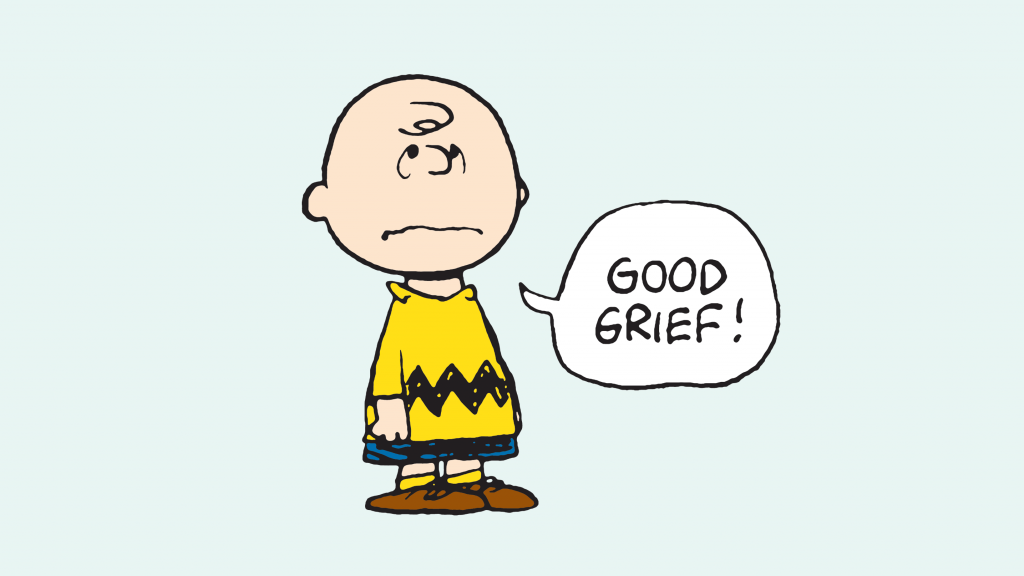
“Good Grief, Charlie Brown!” was often spoken to and by that loveable cartoon character who seemed to be living life with constant loss and disappointment. It was an exclamation that perhaps we should take more to heart that we’ve considered before.
Our recent guest, Claire B. Willis shares in her book, Opening to Grief – Finding your Way From Loss to Peace that we should not hide from grief, but instead give it full expression. GOOD Grief.
Claire quoted Jamie Anderson: “Grief, I have learned is really just love. All that unspent love gathers up in the corners of your eyes, the lump in your throat, and in that hollow part of your chest. Grief is just love with no place to go.”
While leading bereavement groups, Claire has discovered many aspects of grief, and she shared some of her enlightened knowledge with us, even clarifying the decades long standard of death coined by Elizabeth Kubler-Ross in her well-known book: On Death and Dying in which she describes 5 stages of the end of life.
“Elizabeth Kubler-Ross first wrote about the five steps people go through who are dying. Through the years, many have mistaken that theory to mean the five stages of grief. It’s not to say those stages don’t happen. But they don’t happen linearly. There is anger, there is denial, there is shock, there is bargaining, there is acceptance, but it’s not sequential.”
Claire B. Willis
Claire wrote her book to support people in knowing they aren’t supposed to be feeling certain things in certain stages of grief. Claire feels we’ve misrepresented the original idea.
“The way YOU’RE grieving is normal.”
Claire B. Willis
We think of grief as having a very particular face: sadness, sorrow, despair, depression, and hopelessness. But grief is also anger, rage, irritability, impatience, regret, gratitude, and relief.
“Grief has as many expressions as there are people grieving.”
Claire B. Willis
Sometimes people judge other family members. When family members don’t act in ways we believe is expected, they may be accused of not grieving. Claire makes it clear it’s important we all recognize grief in the various forms it comes.
“People criticize themselves for not ‘grieving right’. Don’t feel silenced or shamed by the way you grieve. This will add suffering to an already difficult time.”
Claire B. Willis
Providing support to family and others who’ve lost loved ones helps them not to feel alone. Many times, it’s hard to recognize another’s grief when it looks so different from our own, and it takes strength and vulnerability to express our own grief when others may not understand.
Claire was clear to say that grief can be scary to feel, and that it comes in waves instead of all at once. This is a way our mind protects us from significant pain. She used a metaphor to teach us about the waves of grief.

“If we try to look at the sun, we make a quick glance, then look away. We try again a little later and look as long as we can but turn away when the light is too intense for our eyes. Grief is often experienced in the same way. We can’t sustain the deep feeling of loss all at once.”
Claire B. Willis
That wave of grief is often referred to as S.T.U.G. a Sudden Temporary Upsurge of Grief. You may burst out crying completely out of the blue weeks, month, or years after the loss of your loved one.
“This doesn’t mean you’re going backwards. It’s simply S.T.U.G. Ride it out. It will be gone in 24 hours. Your grief changes in intensity, duration, and frequency. At first the loss causes a searing pain and your whole life is seen as grief. Slowly, different things come into your life, and it moves from a searing pain to a dull ache.”
Claire B. Willis
Think of grief another way….like a broken bone.
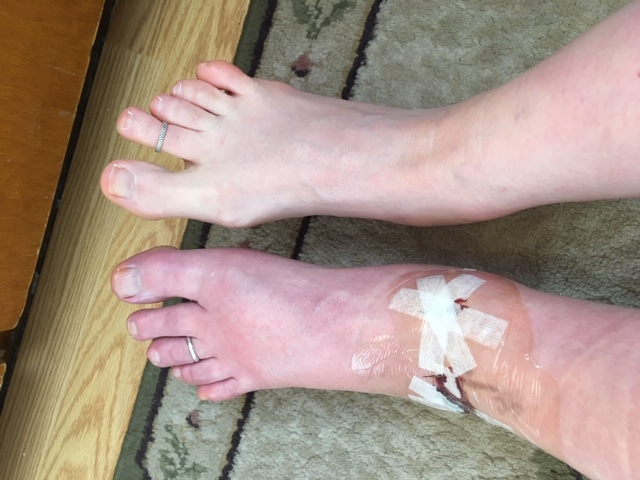
“A broken bone at first is very painful. You have surgery, wear a cast, go through physical therapy, and you walk again eventually. But on rainy days the ache returns to the bone. We all must choose at any given moment if we’re going to cope or deal. We can’t cope when we’re dealing, and we can’t deal when we’re coping. It’s a conscious choice we make.”
Claire B. Willis
Most of the time we don’t get the closure we’d like when a loved one is lost. Claire says that is doesn’t help to think of all the woulda, shoulda, coulda scenarios.
“The last few minutes of someone’s live can often take on too much significance and overshadow the whole of their life. It we don’t get a chance to have the loving departure with our loved one we hoped for, we often judge ourselves and ruminate on what we could have done differently.”
Claire B. Willis
Claire suggests a better way to honor the life of your loved one is to take action which can increase our capacity to help ourselves and others who are grieving.
1. Writing as a refuge. Writing 3-4 times a week about our loved one may decrease depression. Start each entry with “I remember….” In this way you can recreate the life you had together.
You can also write letters to the person you’ve lost. Your entry in that case could be, “Here’s what I wish I could have told you today…” These can become memories for young family members who didn’t know the person as well.
“Find your unencumbered voice. Set aside the censored voice we use daily. Writing allows us to be healthier, as we release those hidden feelings we can’t actually verbalize.”
Claire B. Willis
2. Kindness. People can be so judgmental of others who are grieving. It’s important to remember to simply be kind and know each person grieves in their own way. Claire shared a mediation (one of many in her book):
“May I start right here. May I offer myself kindness and compassion. May I accept myself as I am.”
Be kind to yourself and others. There is a lot of private pain. Make your healing process a no-compare zone.
3. Restoring in nature. Nature asks nothing from us. We just take in what’s happening. Being in the natural world can help us rest. In nature we see the cycles of life, death, and rebirth which will provide a sense of hope.
Claire read a poem by Wendell Barry titled: The Peace of Wild Things
When despair for the world grows in me, and I wake in the night at the least sound in fear of what my life and my children’s lives may be,
I go and lie down where the wood drake rests in his beauty on the water, and the great heron feeds.
I come into the peace of wild things who do not tax their lives with forethought of grief.
I come into the presence of still water, and I feel above me the day-blind stars waiting with their light.
For a time, I rest in the grace of the world, and am free.

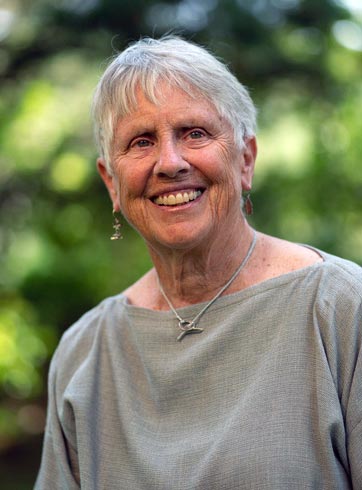
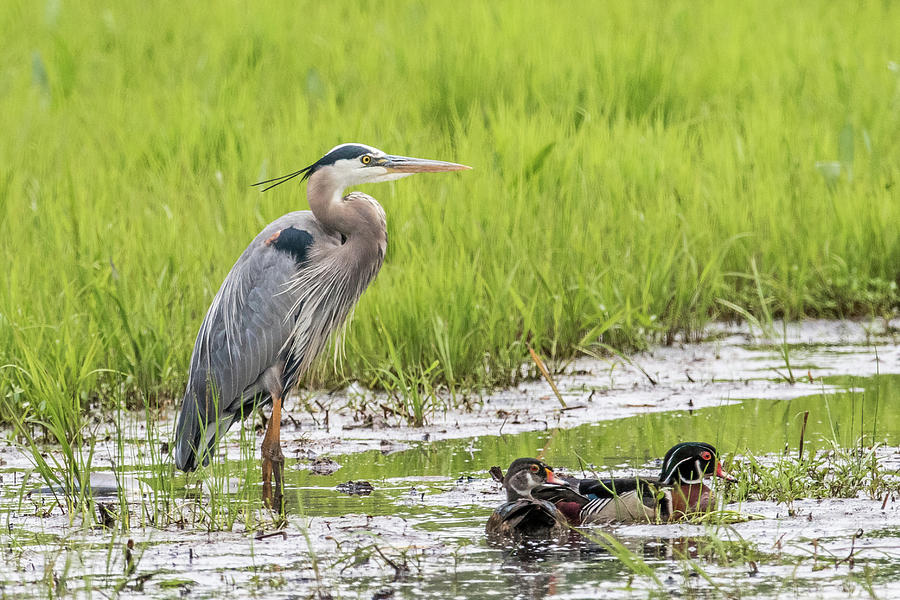
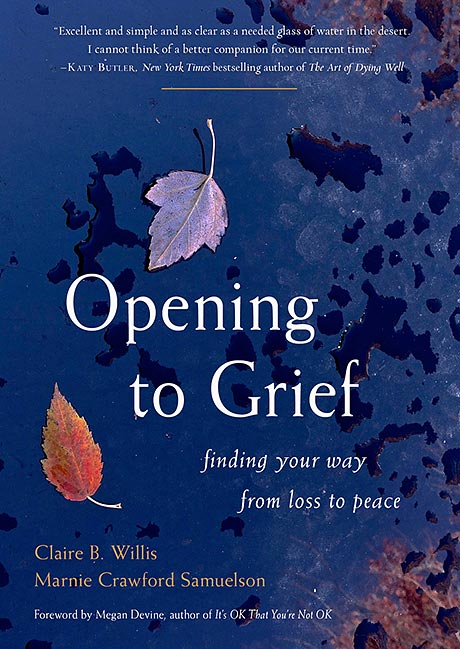


Quick Links to our Social Media Sites